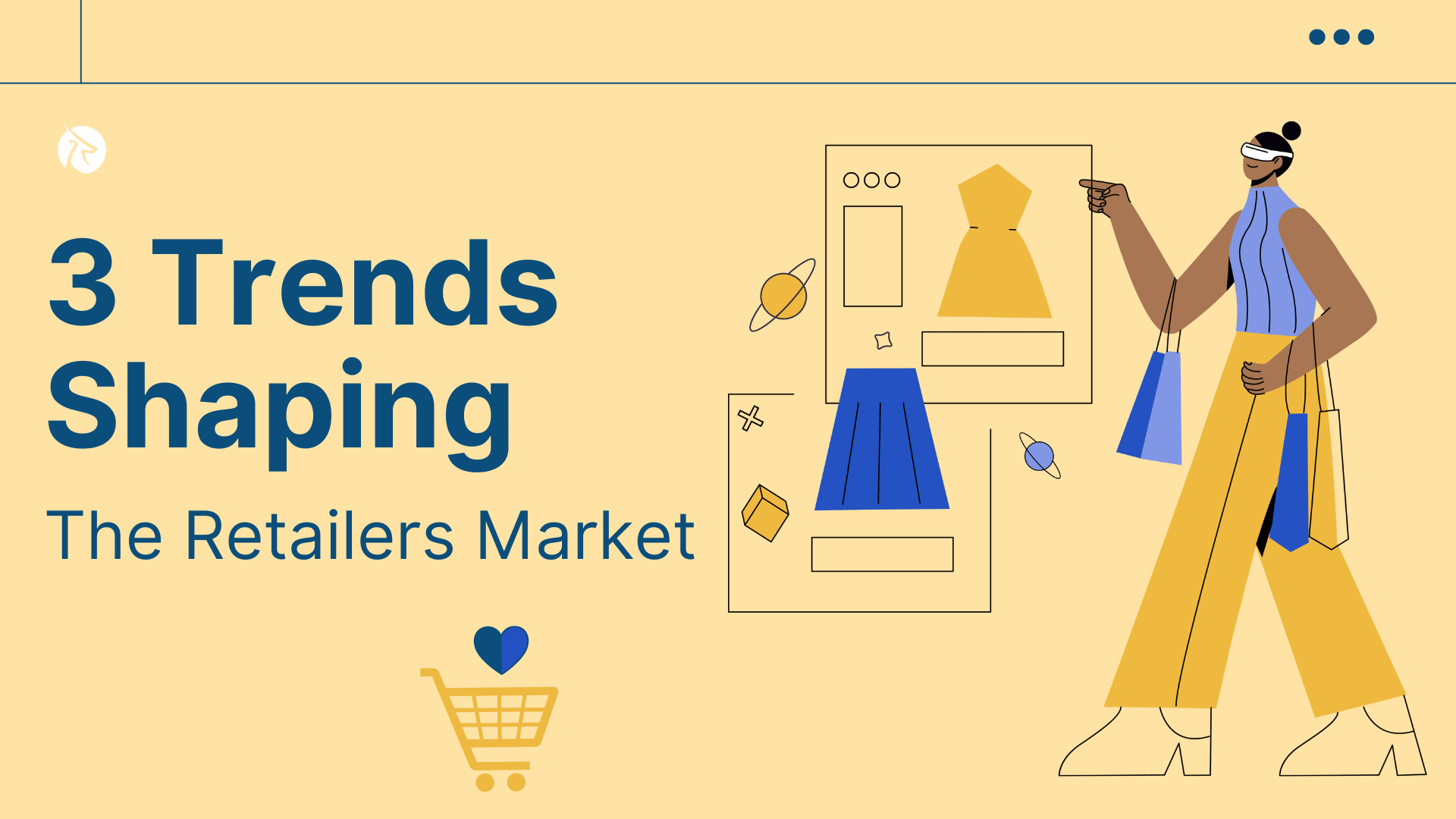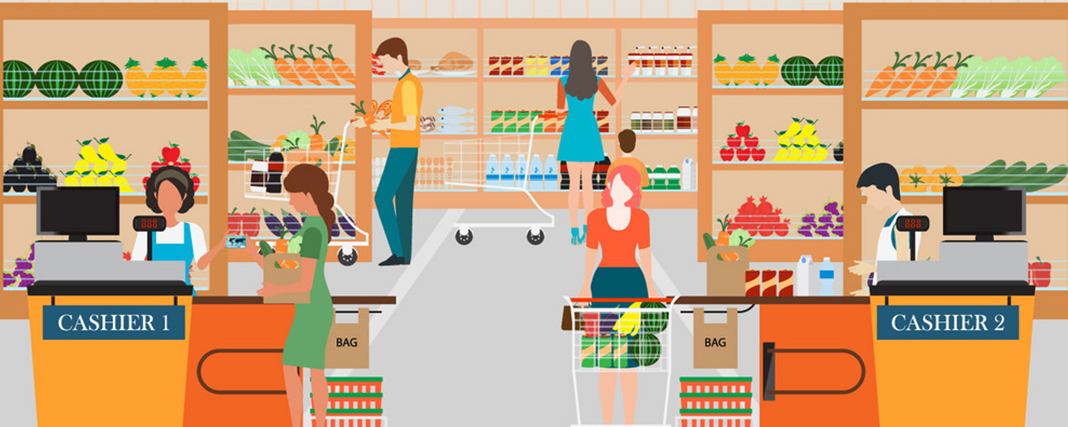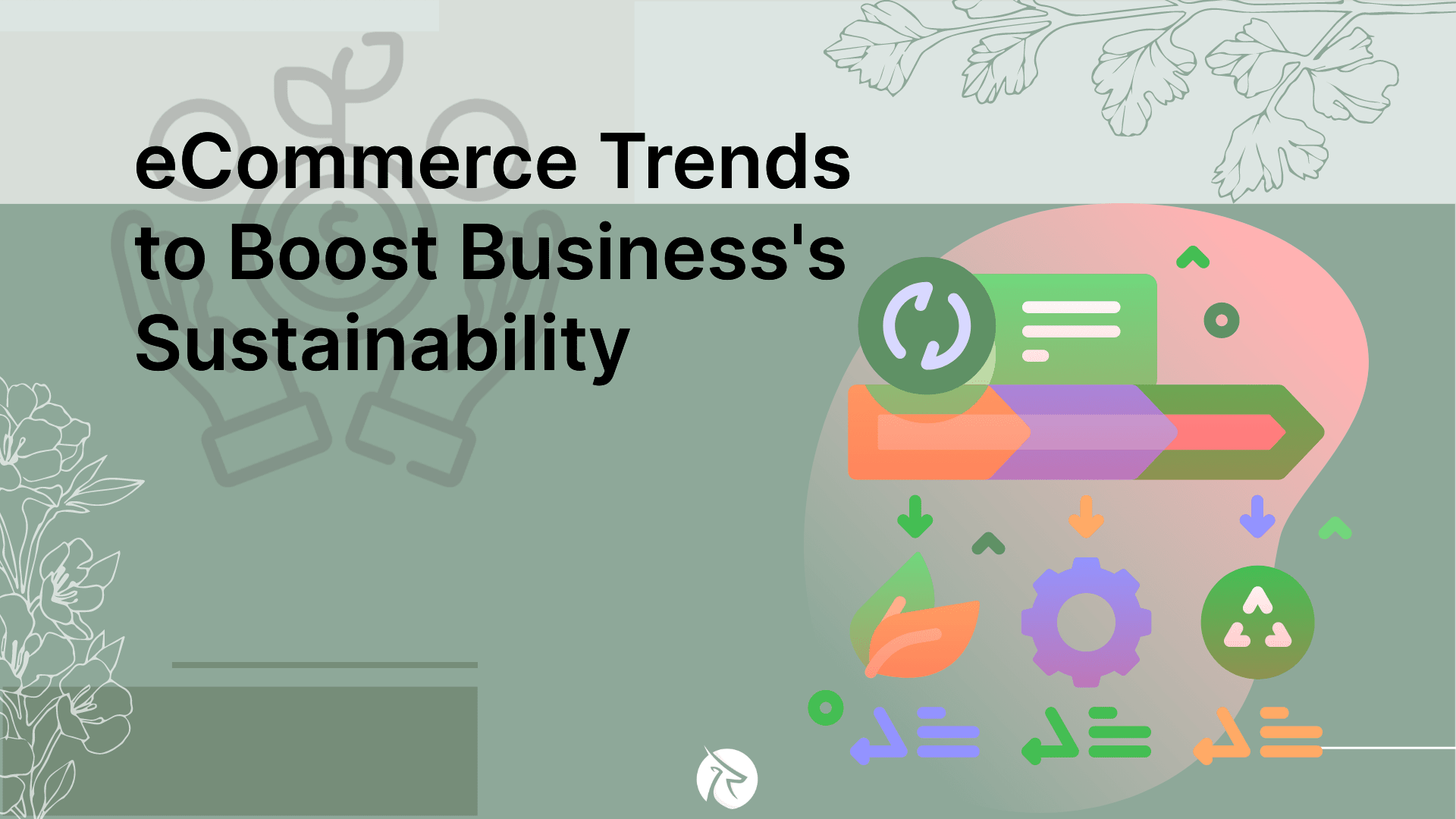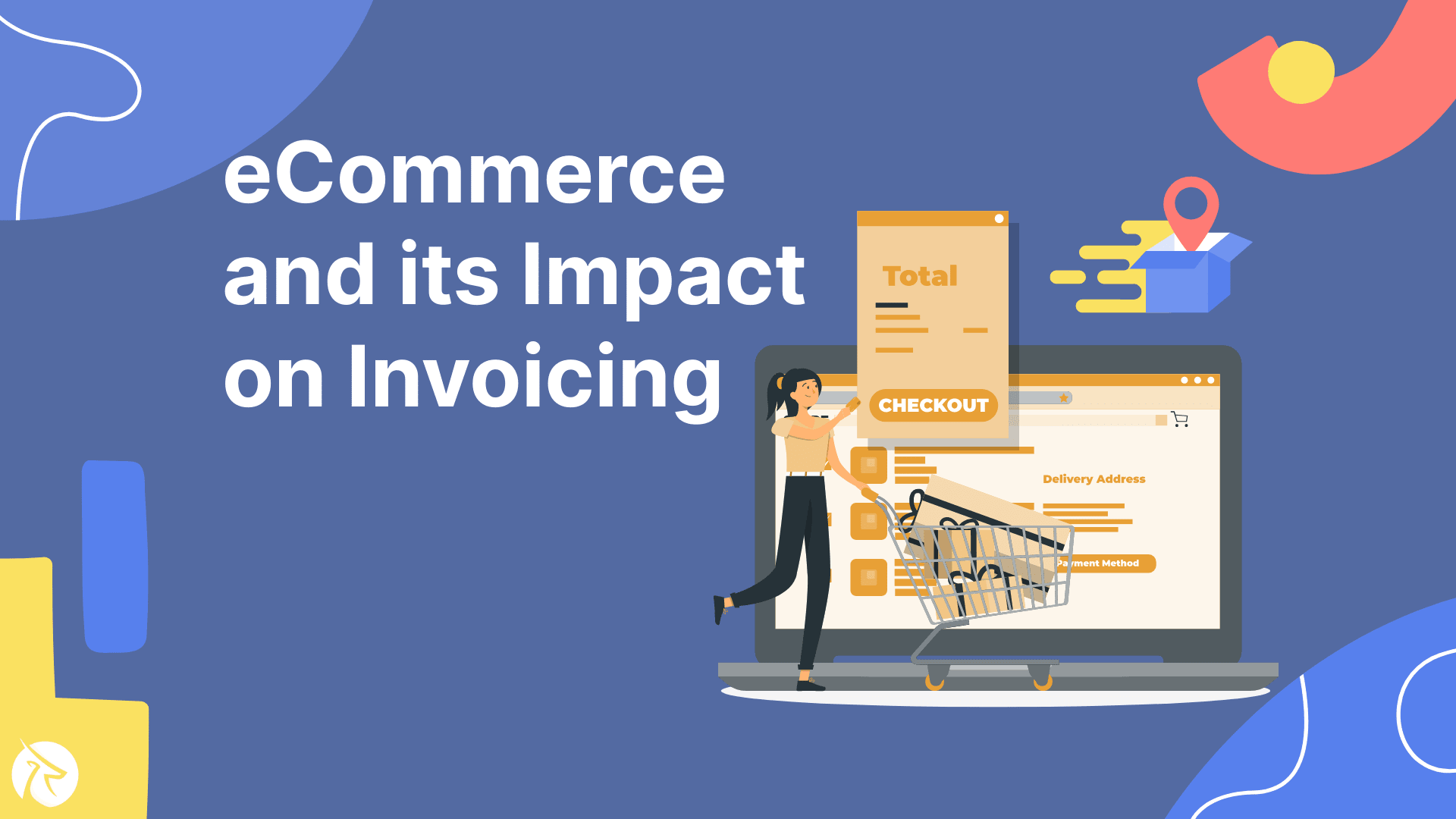3 Trends Shaping The Retailers Market

The retail landscape is undergoing a significant transformation, driven by evolving consumer behaviors and technological advancements. In this article, Fordeer will explore the key trends shaping the market, including ethical research, sustainability, and the consumer marketplace. Let’s discover how these trends are impacting the industry and the challenges retailers face in adapting to them with us!
Introduction to Retailers Market
The dynamic nature of the retail industry
The retail industry is a thrilling ride, constantly evolving at breakneck speed. Consider this: a recent study revealed that 70% of shoppers now research products online before visiting stores, while 54% make purchases directly through social media platforms. This digital shift, fueled by a 32% increase in global e-commerce sales over the past four years, paints a clear picture: the retail landscape is no longer static.
But the transformation goes beyond online dominance. 80% of retailers are now prioritizing omnichannel experiences, seamlessly blending online and physical shopping journeys. This translates to features like buy-online-pick-up-in-store (BOPIS), used by 73% of consumers, and click-and-collect options, embraced by 67%. Even physical stores are undergoing a makeover, with 85% of retailers investing in experiential retail strategies to engage customers beyond just transactions.
This dynamic nature presents both challenges and opportunities. Retailers must be agile, adapting to changing consumer preferences and technological advancements. The good news? 94% of retail executives believe technology is instrumental in their success.
Tools like artificial intelligence (AI) are being used to optimize inventory management, analyze customer data, and personalize shopping experiences. And let's not forget the power of social media: 87% of retailers leverage it for marketing and customer engagement, reaching 3.81 billion active users worldwide.

The future of retail is bright, but not for the faint of heart. By embracing the dynamic nature of the industry, investing in the right tools, and understanding customer needs, retailers can not only survive but thrive in this exciting new landscape. Remember, the ride is fast, but the rewards for those who adapt are plentiful.
The ever-evolving trends shaping the retail industry
The retail landscape is undergoing a metamorphosis, driven by a confluence of trends that reshape how we shop, interact with brands, and even perceive value. Consider this: a recent study revealed that 73% of consumers now expect seamless omnichannel experiences, seamlessly blending online browsing with physical store visits.
This translates to a 20% increase in customer satisfaction when retailers provide a unified experience across channels. But it's not just about convenience; 80% of shoppers are now willing to pay a premium for sustainable products, driving a 30% growth in the sustainable retail market.
This shift isn't just ethical, it's strategic – 91% of Gen Z consider sustainability a purchase factor, representing a $130 billion market opportunity. Technology also plays a starring role, with 71% of retailers investing in AI-powered solutions, leading to a 15% reduction in operational costs. AR/VR is also making waves, with 40% of consumers expecting to use it for product visualization by 2025, potentially impacting $1.2 trillion in retail sales.
But it's not just about tech; the human touch remains vital. 72% of consumers value personalized experiences, leading to a 10% boost in conversion rates for retailers who personalize product recommendations.

The future of retail isn't just about selling products, it's about fostering connections, anticipating needs, and delivering personalized value—a complex dance that requires agility and constant adaptation. The numbers paint a clear picture: the retail landscape is evolving at a breakneck pace, and those who embrace these trends are poised to thrive in the ever-changing world of commerce.
Key Trends Shaping The Retailers Market
Ethical Search
The retail landscape is undergoing a significant shift, propelled by the rising tide of conscious consumerism. Today's shoppers are increasingly seeking out brands that prioritize ethical practices, environmental responsibility, and social impact. This trend, known as ethical search, is reshaping the way retailers operate and engage with customers.
Data paints a clear picture: A 2023 report by McKinsey found that 70% of global consumers are willing to pay a premium for sustainable products, while a 2022 study by IBM revealed that 83% of Gen Z shoppers actively research a brand's social and environmental values before making a purchase. This translates into trillions of dollars flowing annually towards ethically conscious brands.
Consumers demand clear visibility into a product's journey, from sourcing materials to labor practices and environmental impact. Retailers are leveraging blockchain technology to offer trackable supply chains, enabling customers to make informed choices.
Eco-friendly products and responsible sourcing are top priorities. Retailers are embracing sustainable packaging, renewable energy sources, and reduced plastic usage. A 2022 NielsenIQ study found that 48% of global consumers would switch brands for one with a stronger sustainability commitment.
Fair wages, safe working conditions, and responsible treatment of workers are gaining critical importance. Consumers are actively seeking out brands that prioritize ethical labor standards and hold suppliers accountable.

Retailers are forging deeper connections with their communities by supporting local initiatives, partnering with NGOs, and championing social causes. This fosters trust and loyalty among values-driven consumers.
Ethical search extends to individual preferences. AI-powered platforms can recommend products that align with a customer's specific values and ethical priorities, further personalizing the shopping experience.
Balancing affordability with ethical sourcing, ensuring transparency throughout complex supply chains, and effectively communicating ethical commitments are just some of the hurdles retailers face. However, the ethical search trend is here to stay, and adapting to this evolving landscape is crucial for retailers to thrive in the future. By embracing these trends and prioritizing ethical practices, retailers can not only attract conscious consumers but also contribute to a more responsible and sustainable future for the industry.
The numbers speak for themselves. Ethical search is not a fad, it's a fundamental shift in consumer behavior. By embracing and implementing these trends, retailers can tap into a lucrative market while contributing to a positive social and environmental impact, ensuring their long-term success in the ever-evolving retail landscape.
Consumer Marketplace
The consumer marketplace is experiencing a transformative shift, driven by a confluence of technology, changing consumer behavior, and evolving economic landscapes. One dominant trend is the rise of omnichannel experiences, with 73% of consumers expecting seamless integration across online and physical stores. This includes features like click-and-collect, mobile shopping, and social commerce, blurring the lines between traditional channels and creating a unified customer journey.
Personalization is another key trend, with retailers leveraging data and AI to tailor product recommendations, promotions, and even in-store experiences to individual preferences. Studies show 80% of consumers are more likely to buy from brands that offer personalized experiences, demonstrating its crucial role in attracting and retaining customers.

Sustainability has become a major force shaping consumer choices, with 70% of Gen Z willing to pay more for eco-friendly products. Retailers are responding by offering sustainable products, implementing ethical sourcing practices, and highlighting their environmental commitments. This shift towards conscious consumerism is estimated to reach $1.4 trillion by 2028.
Furthermore, social commerce is rapidly gaining traction, with 54% of consumers discovering new products through social media platforms. Retailers are leveraging platforms like Instagram and TikTok for influencer marketing, live shopping experiences, and direct sales, creating a highly engaging and interactive shopping environment. This trend is projected to reach $6.8 billion by 2025, highlighting its growing significance.
Looking beyond these established trends, emerging technologies like augmented reality (AR) and virtual reality (VR) are poised to further revolutionize the consumer marketplace. These technologies can provide immersive product visualization, personalized recommendations, and interactive shopping experiences, further blurring the lines between the physical and digital worlds.
Rewarded Sustainability
The retail landscape is undergoing a significant shift, with consumers increasingly prioritizing eco-friendly products and practices. This trend, dubbed "Rewarded Sustainability," is evident in a surge of initiatives that incentivize environmentally conscious behavior. Consider these compelling statistics:

73% of global consumers are willing to pay more for sustainable products, according to a 2021 study by McKinsey. This translates to a potential $150 billion market opportunity for businesses that embrace sustainability.
Loyalty programs are being revamped to reward sustainable choices. For instance, Patagonia offers points for returning worn-out gear for repair, while Sephora rewards customers for refilling beauty products. This incentivizes repeat business and fosters brand loyalty among environmentally conscious consumers.
Social media platforms are playing a crucial role. Platforms like Instagram and TikTok are rife with influencers promoting sustainable brands and products, reaching millions of potential customers. A study by Sprout Social found that 73% of Gen Z consider sustainability important when making purchasing decisions, highlighting the influence of online trends on younger generations.
Transparency is key. Consumers are demanding information about the origins and environmental impact of products. Brands are responding by adopting traceability technologies like blockchain, allowing consumers to track their purchases' journey from farm to shelf. This fosters trust and strengthens the brand image.
Circular economies are gaining traction. Retailers are exploring innovative models that extend product lifespans, such as refurbishment, upcycling, and buy-back programs. This reduces waste and resonates with consumers, who value resource efficiency. If you want an application that can automate all the invoicing processes and reduce human resources and time, try our Fordeer: PDF Invoice Generator.
Conclusion,
The future of retail is dynamic and exciting. By embracing these trends and staying ahead of the curve, retailers can create engaging experiences, attract new customers, and thrive in the evolving landscape.











